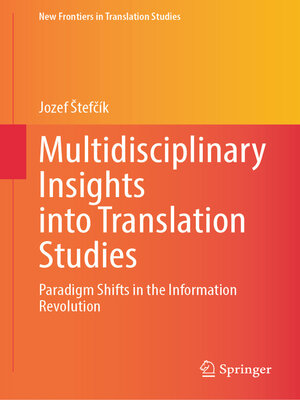Multidisciplinary Insights into Translation Studies
ebook ∣ Paradigm Shifts in the Information Revolution · New Frontiers in Translation Studies
By Jozef Štefčík

Sign up to save your library
With an OverDrive account, you can save your favorite libraries for at-a-glance information about availability. Find out more about OverDrive accounts.
Find this title in Libby, the library reading app by OverDrive.



Search for a digital library with this title
Title found at these libraries:
| Library Name | Distance |
|---|---|
| Loading... |
The book explores translation theory, the translation industry's current state and potential future, and translation research and pedagogy. It delves into disruptive technologies, globalisation, and changing market trends that are shaping translation studies. The book highlights significant advancements in the translation industry and translation training technology, particularly machine translation and artificial intelligence in practice, focusing on interdisciplinary human-based approach and its impact on the increased demand for translations. The book offers views on new opportunities for labour positions in the translation industry and training models that should be carried out to corresponding research. Moreover, the book emphasises the increasing demand for translation services in selected domains and niche industries. While acknowledging the potential disruptions brought by technological advancements, the ideas presented in the book underline the importance of adaptability and continuous learning for language professionals. It calls for the education system to embrace the challenges and equip future language professionals with the necessary skills to thrive in a changing landscape. The presented concepts aim to encourage readers to embrace technological advancements, human cooperation, specialisation in niche areas, and actively participate in professional networking to contribute significantly to the growth of the fast-evolving language industry. This book is intended for curricula designers at universities, academics and students in the fields of translatology, philology, linguistics, humanities, languages, and cultural studies, and trainers of translation and interpreting. This book is also useful for lexicographers and terminographers, and freelancers in LSP.







